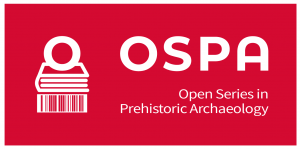Caroline Heitz
Caroline Heitz has studied Prehistoric Archaeology, Social Anthropology and the Modern History of Eastern Europe at the University of Basel, Switzerland. She has been a research and teaching assistant at the Institute of Archaeological Sciences at the University of Bern until 2018. Within the scope of her PhD-project she has worked on the phenomena of mobility, entanglement, appropriation and transformation in Neolithic pottery from the UNESCO-World Heritage wetland sites of Lake Constance and Lake Zurich. She currently holds a postdoc-position and dresses the mutuality of human-environment relations in her reserach. Having a special interest in inter- and transdisciplinarity, she combines theoretical approaches from social anthropology with methods of archaeology and archaeometry in her research.
https://orcid.org/0000-0001-7188-6775
Martin Hinz
Martin Hinz studied Archaeology, European Ethnology and Computer Science in Germany at the Universities of Berlin and Kiel. After his PhD he worked in Kiel for several years as Assistant Coordinator for the DFG Priority Programme SPP 1400 ‘Early Monumentality and Social Differentiation’, responsible for the editing of several collective volumes. He is also Co-Editor of the ‘Journal of Neolithic Archaeology’ and the ‘Journal of Glacial Archaeology’. His current focus is the combination of scientific data, quantitative methods and archaeological knowledge, particularly in respect to the Neolithic and Bronze Age in Switzerland. Since 2018 he holds a position as senior researcher at the Institute for Archaeological Sciences at the University of Bern/Switzerland.
https://orcid.org/0000-0002-9904-6548
Mirco Brunner
Mirco Brunner studied Prehistoric and Roman Archaeology at the University of Bern. As part of a binational cotutelle de thèse project between the Universities of Bern and Kiel he wrote his PhD thesis on mobility, networks and transformation processes of prehistoric societies in the central Alpine region. He has taught various seminars ranging from Alpine archaeology to the application of geophysical methods in fieldwork contexts. His main fields of interest are Bayesian analysis of radiocarbon dates, network analysis and multivariate statistics. He is also co-organiser of the Swiss International Summer School for Alpine Archaeology (SISA).
https://orcid.org/0000-0003-0655-7603
Julian Laabs
Julian Laabs studied Archaeology and Geography at the University of Kiel. He finished his PhD 2020 at the Institute for Archaeological Sciences at the University of Bern which was embedded in the trinational Project ‘Beyond lake villages: Studying Neolithic environmental changes and human impact at small lakes in Switzerland, Germany and Austria’. Since 2020 he is employed as scientific research assistant and coordinator at the University of Kiel within the DFG Collaborative Research Centre 1266 ‘TransformationsDimensionen’. His main area of work is agent-based simulationmodelling applied on archaeological research questions and geostatistical analysis of Neolithic and Bronze Age datasets.
https://orcid.org/0000-0003-1378-3908
Albert Hafner
Albert Hafner studied Prehistoric Archaeology, Ethnology and Biology (Geobotany) at the Universities of Tübingen, Freiburg i.Brsg. (dissertation) and Zurich (habilitation). His dissertation dealt with the Early Bronze Age in Western Switzerland, while his habilitation research focused on highaltitude Alpine archaeology in the context of resource use strategies, mobility and climate change. He worked in the field of archaeological monument conservation, carried out large-scale rescue excavation projects in the field of underwater and wetland archaeology and was instrumental in the successful nomination of the pile dwellings of the Alpine space as UNESCO World Heritage sites. Since 2012 he holds a full professorship in Prehistoric Archaeology at the University of Bern with projects on the Neolithic and Bronze Age in Europe. Within the framework of an ERC Synergy Grant, he currently researches on lake-side settlements in the Balkans. His research interests include Holocene human-environment relationships, societal developments, burial rites, methods of underwater and alpine archaeology.
